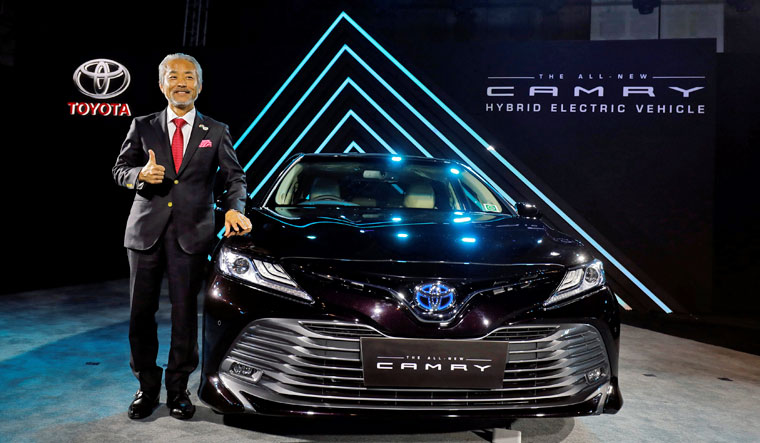Pitching for hybrid cars in India, Japanese auto major Toyota said stable regulations and reduction in taxes could further help the company to bring in models with even better technologies to counter air pollution.
The company, which on Friday launched an all-new version of Camry Hybrid sedan in the country, said self-charging electric cars or hybrids are the best solution at the moment in India to check forex outgo on fuel imports and reduce vehicular pollution.
"In the mid to long term, we have a variety of technologies which can be brought into the country...it all depends on stable regulations and taxation... if the structure of tax regulations changes drastically, quickly we can put heavy amount of investment in new technologies," Toyota Kirloskar Motor (TKM) Managing Director Mazakazu Yoshimura told reporters here.
TKM is a joint venture between the Japanese auto major and Kirloskar group.
While terming taxation structure in India as very complicated, Yoshimura added that vehicles should be taxed on the basis of emissions rather than size or engine power.
"If emissions are better you (should) get better tax benefits," Yoshimura said.
Under the GST regime, hybrid vehicles have been put in the same category as big petrol and diesel luxury cars, attracting 28 per cent rate with a cess of 15 per cent.
He said self-charging electric vehicles are better for a country like India as they do not require additional charging infrastructure and at the same time could help in reducing air pollution.
Introduction of such cars could help the country save forex outgo on fuel imports, he added.
"We have also fuel cell technology which is zero emission..at the moment the best for India is that we should introduce self-charging hybrid cars which could reduce energy costs," Yoshimura said.
Citing examples of the Chinese market, he said that incentivising green technologies by way of taxation would help in establishing them in the country.
On company's product plans, Yoshimura said in addition to new models the company would also utilise government's move to allow a maximum of 2,500 completely-built units or semi-knocked-down kits each year to "test market vehicles with new technology" in the country.
After testing the market, the company can then think of launching such models on a larger scale, he added.


